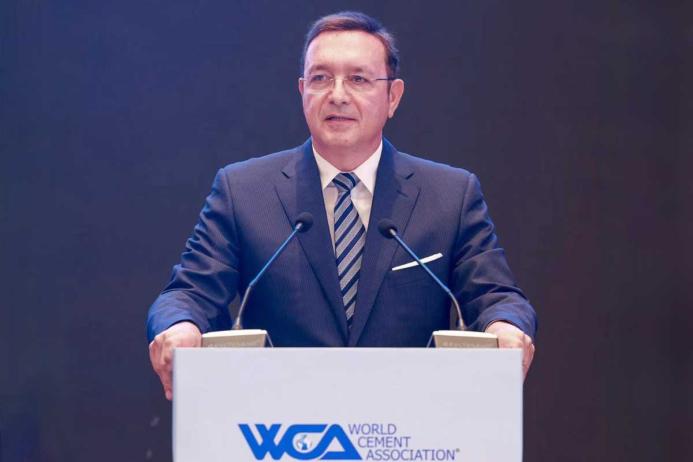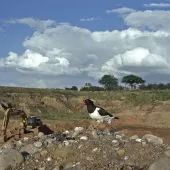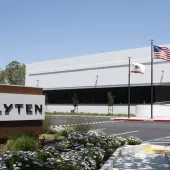WCA director addresses global cement industry in China
In an address at the World Cement Association (WCA) Annual Conference, Emir Adiguzel, director of the WCA, outlined the significant challenges and transformative opportunities facing the global cement industry. The conference, held in Nanjing, China, brought together industry leaders, innovators, and stakeholders to discuss the future of cement production and sustainability.
In his address, Emir Adiguzel emphasised the cement industry’s unwavering commitment to environmental stewardship and innovation. “Our aim is to bring together the capabilities of cement producers worldwide with equal rights for all, regardless of size, nationality, or group,” he stated.
He highlighted the industry’s proactive approach to addressing climate change, including significant investments in carbon capture technology. “These high-cost projects signal our dedication to mitigating environmental impact and securing a greener future,” he said, adding that “for the first time in history, cement production has the potential to become a net-zero industry.”
Emir Adiguzel provided an insightful analysis of global cement demand, noting a projected stagnation from 2024–2030, with growth anticipated only in the Middle East, India, and Africa. “According to On Field Investment Research, Sub-Saharan Africa is expected to see a 77% growth by 2030, India 42%, and North America 20%,” he explained, “while Turkey, China, and Europe are expected to face the weakest markets.
“However, despite weak global demand, the industry is poised to sustain its gross margin expansion in Europe, driven by higher cement prices and reduced fuel costs, whereas in the rest of the world, especially in emerging markets where free market dynamics prevail, and prices and margins dropped, sustainable practices and alternatives remain under-utilized.”
Addressing the advancements and challenges in carbon capture technology, Emir Adiguzel noted that while promising, these technologies require further development and substantial investment. “The adoption of carbon capture technology faces challenges in terms of scalability and cost-effectiveness. Major Western multinational producers are funded and investing heavily, but the financial cost is huge. Such burden on independent producers may lead to closures, affecting cement supply and prices as high as €250 per metric tonne in the near future,” he warned.
Emir Adiguzel highlighted the importance of strategic initiatives and collaboration within the industry. “Building networks and sharing knowledge are key activities of the WCA. Our annual conferences, awards, and benchmarking activities are designed to support our members in improving sustainability and operational performance,” he said.
He also discussed the need for the Chinese cement industry to adopt new strategies to address surplus capacity and market saturation. “Closing inefficient kilns, increasing the use of alternative raw materials, and investing abroad are crucial steps. Acquiring or establishing international companies can help capture global market opportunities,” he suggested.
He concluded by emphasizing the pivotal juncture at which the global cement industry stands. “Collaboration within the World Cement Association is essential for sharing knowledge and aligning on long-term objectives. Ensuring the industry’s resilience and adaptation to evolving market dynamics is crucial for the survival of independent cement producers,” he stated.







